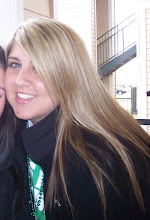Webb makes a very good point when he states that studying gender can be very intimidating at times. I, personally have never taken a Women's Studies class, but how Webb describes it, is exactly how I picture one to be. I never had even touched on the Feminist theory, until my third year here at Western. In my view, it is not only important to include women authors but to actually study how their lives and how their lives influences their writing. Throughout my education, I have read several texts written by women, but never have I actually analyzed a text using the feminist theory. Although, Webb used some very good texts, some of them I found to be dry. One of these texts was "A Jury of her Peers" by Susan Glaspell. I have read this play, and I found it to be very almost boring in a sense, maybe because it is how we analyzed or how we really didn't, but I can see how some of these texts would not relate to students very well. Studying gender and feminist theory brings a new light to studying texts in the classroom, it can be very controversial and can relate to students in many ways.
Teaching Gay and Lesbian studies can be very controversial. Although I believe it is very important to cover themes such as these, it must be done in a certain. I found the exercise that the teacher Tisha used for the "Am I blue?" was very controversial, yet had a very large impact on the students. It is hard to say what I would do in the position if a student had asked if I were gay. I understand why she would answer the way she did, but I also wonder if I would have said something like "No, I am not gay, but it is okay if I was" or something along those lines. I wonder what other people would say? That is a tough call in my eyes.
Subscribe to:
Post Comments (Atom)

1 comment:
You might also have to deal with administrations wondering why this question is even appropriate in the classroom setting.
I liked her answer of "Does it matter to you?" She doesn't actually reveal herself, which tells the students that her sexual orientation shouldn't have anything to do with her teaching. Further, she throws the question back at the student, forcing him to acknowledge the source behind the question.
Post a Comment